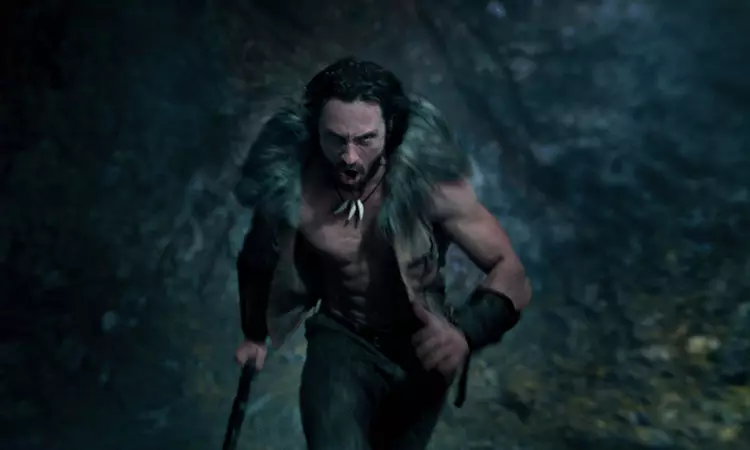Sony has persistently sought to expand its cinematic universe centered around Spider-Man’s rogues’ gallery, most notably through the infamous Sinister Six. This group of nefarious villains first assembled in the 1960s comics, presenting an interesting opportunity for cinematic explorations. Unfortunately, as seen with the release of “Kraven the Hunter,” the outcome has been less than triumphant. The film, positioned as a potential standout in this subset of Sony’s superhero offerings, appears to falter in delivering the depth and excitement fans might hope for.
While adaptations often deviate from original comic book aesthetics, Kraven’s translated look is perplexing, especially considering the character’s history as a notable adversary with a flamboyant costume. The transition to a more grounded appearance seems to be a strategic choice aimed at avoiding ridicule. However, this shift not only dilutes his unique flair but also fails to produce a memorable first impression on the audience. Directed by J.C. Chandor—who is better known for thought-provoking narratives in films like “Margin Call”—the film struggles to find a coherent identity within the superhero tableau. The choice to leverage a grittier tone, reminiscent of successful films like “Logan” and “Deadpool,” results in a jarring experience devoid of humor or deeper narrative arcs.
Kraven’s character in the film is portrayed as a muddled blend of several archetypes. The combination of traits reminiscent of both Tarzan and the Punisher yields confusion rather than complexity, as audiences are left wanting more motivation and emotional grounding. Despite the ambitious backstory involving voodoo elements and a rejection of his criminal roots, Sergei Kravinoff seems relegated to simply being a muscular antagonist, lacking the multifaceted qualities that make him an appealing figure in the comics.
Moreover, supporting characters such as Kraven’s father, played by Russell Crowe, and rival antagonist Rhino fail to rise above their archetypal roles, further detracting from narrative engagement. What should have been opportunities for rich character conflicts within the storyline turn into predictable encounters that do little to advance the overarching plot.
Throughout the comic series, Kraven has been presented as a character with depth, particularly in the acclaimed “Kraven’s Last Hunt” storyline, which offered a poignant examination of heroism and identity. However, the film adaptation opts for a superficial portrayal, causing it to ultimately miss the mark. Fans of the comics expecting a thrilling dive into Kraven’s psyche and complexities will find themselves disappointed.
While “Kraven the Hunter” does manage to entertain on some level, the question remains: Can Sony truly leverage its Spider-Man-associated properties into successful standalone films? The current trajectory suggests an uphill battle, as they seem to stumble on characters with great potential, using them instead as mere vessels for action sequences devoid of substantive storytelling. What could have been an engaging deep dive into one of Spider-Man’s most enigmatic villains sadly becomes just another forgettable chapter in a convoluted cinematic universe.

